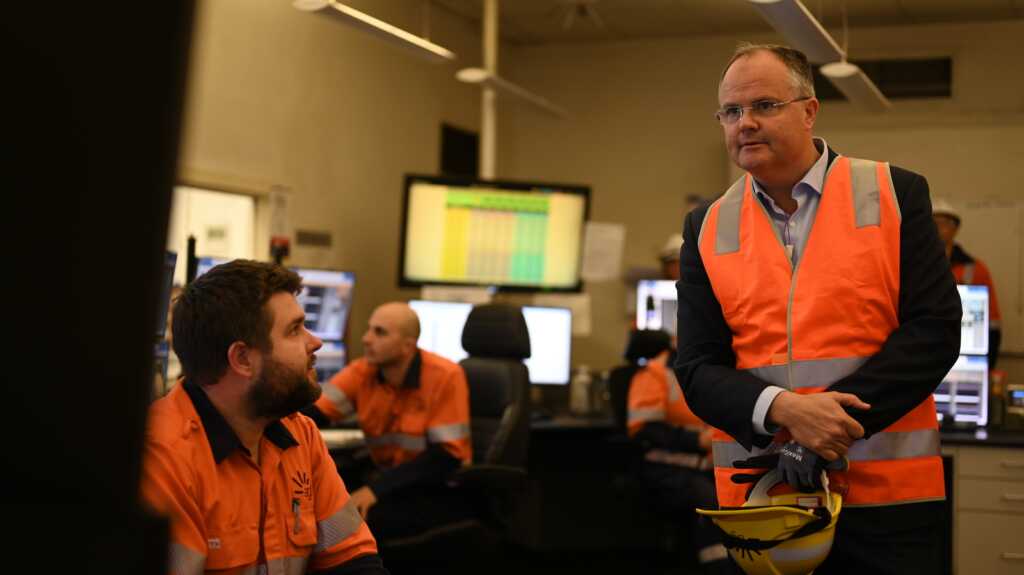28 April 2023
Australia’s energy security is at risk and if the Albanese government’s meek response to the closure of the Liddell Power station is any indication, the country is walking blindfolded towards a cliff.
When the Liddell Power Station – or ‘the old girl’, as she’s fondly referred to – is put to rest, New South Wales will lose around 13 percent of its electricity supply, and an even greater share of the reliable generation needed to keep prices down and the lights on.
Liddell’s closure marks the start of a turbulent new era in Australia’s energy market where 20GW – or 80 percent – of baseload energy will be prematurely ripped out of the grid by 2035, with no guarantee of replacement.
Anyone who knows anything about energy systems would be aghast at the prospect of so much baseload power exiting the grid without any realistic plan to replace it.
Making matters worse is that these power stations aren’t being mothballed but demolished. As an island nation that doesn’t import electricity, this makes us even more vulnerable.
No wonder our major trading partners, especially Japan, are sounding warning bells about government decisions here in Australia posing risks to their own energy security.
While their concerns relate to continued reliable supply of our resources, principally gas, our government’s recklessness with our own energy security would not give them any comfort.
Our trading partners understand something our own government doesn’t – without energy security, you can’t have national security.
Unfortunately, such real-world pragmatism doesn’t fit Labor’s ideological worldview.
So much as the Albanese Government may disregard pleas from Japan and other trading partners, its hyper-political machine won’t ignore Australia’s voting public for long.
It’s everyday Australians who are hurting from Labor’s mismanagement of energy.
Premature closure of baseload power stations along with restrictions on the supply of gas, will continue to put upward pressure on prices.
But, the bigger threat lies with a lack of reliability and increased likelihood of energy rationing and blackouts in the years ahead.
The Australian Energy Market Operator predicts that between now and 2035, all mainland states except Western Australia will be in breach of their reliability obligations by 2027.
Despite this risk, Labor tore up advice from the Energy Security Board recommending a technology-neutral capacity mechanism to encourage existing generators to remain in the system for as long as they are needed, and greater investment in reliable gas, pumped hydro and batteries.
Labor is also ignoring AEMO’s call for new gas supply by shelving plans to develop new gas basins, cancelling funding for critical gas infrastructure, and introducing a punitive carbon tax scheme.
Not even the looming closure of the Eraring power station from 2025 – a further 21 per cent of NSW supply – has forced the Albanese Government into action.
It’s not like there isn’t a precedent for government action.
When the Coalition was in Government, independent economic modelling showed that without timely, adequate replacement of Liddell, prices risked rising 30 percent by the end of 2024.
So, we acted by negotiating an extension to the life of Liddell, investing in renewables and investing in a new flexible gas generator at Kurri Kurri in the Hunter Valley to be ready for the summer peak in late 2023.
The Hunter Power project was on track for delivery when we left Government.
But, on coming to office, Labor insisted the project convert from a gas peaker into a hydrogen plant running on 30 per cent from day one, despite lacking commercially available green hydrogen and contrary to expert advice. It now won’t be ready until December 2024.
The Albanese Government is yet to learn the importance of striking the right balance.
Decarbonising the economy requires a balance between reducing emissions, keeping prices low and maintaining reliability in the grid.
Getting this balance right alleviates cost of living pressures on families, ensures businesses and industries remain strong and helps guarantee energy security.
Labor must drop its ideological approach to managing Australia’s energy system.
Reducing emissions while also ensuring consumers have access to affordable and reliable energy is the defining benchmark for successful policy.
This means consumers need to be put at the centre, pragmatism should replace ideology, and policy should be informed by economics and engineering.
As the old girl takes her last breath and Liddell closes forever, the Albanese Government can either continue down its reckless path of higher prices, less reliability and compromised energy security.
Or, it can shift gears and start acting responsibility by declaring its hydrogen plans for the Hunter Project dead, acknowledging the risk posed by the premature closure of Eraring and using the Federal Budget to reverse its demonisation of gas.
ENDS
Contact: Mitch Bland 0401 257 064
